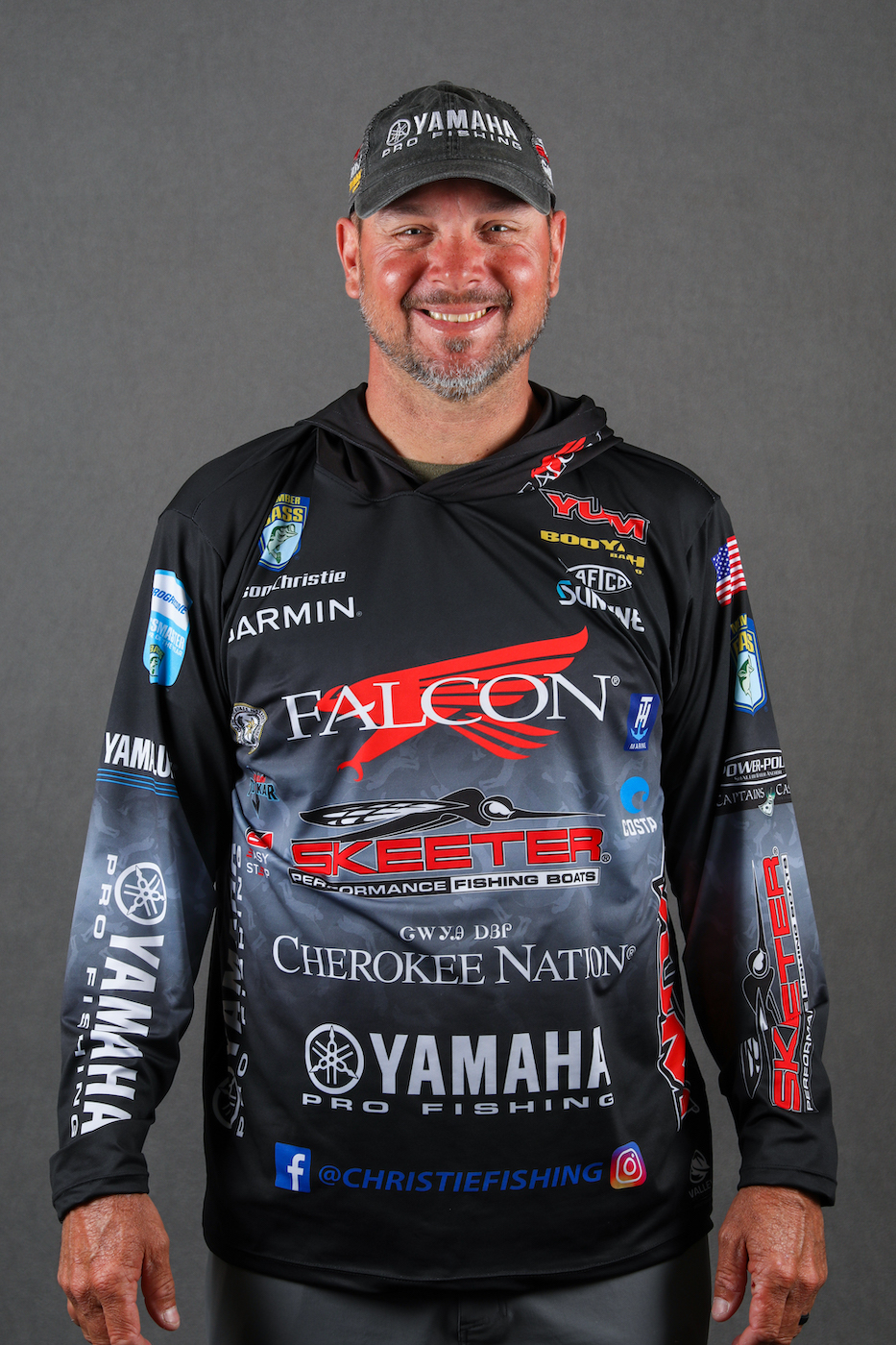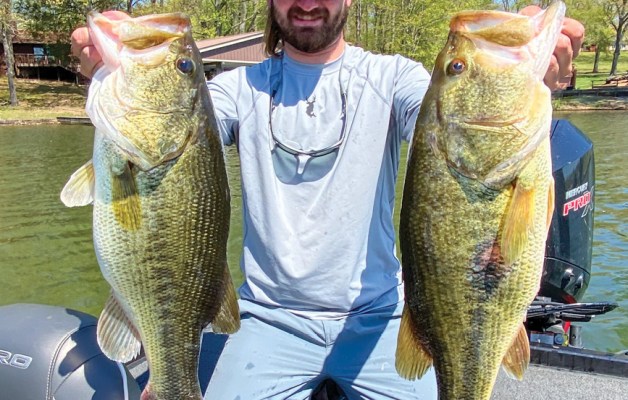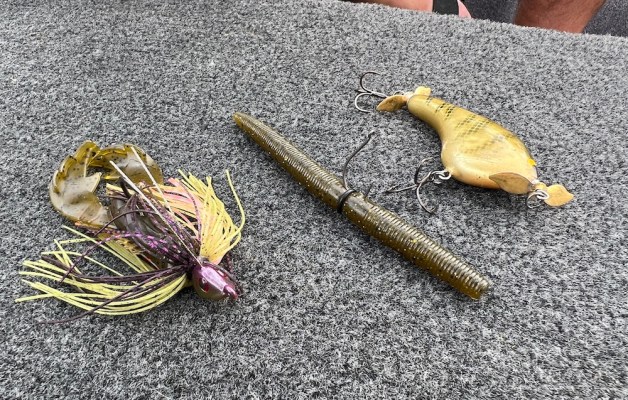Fishing in cold weather can be tough on an angler physically, but there’s also a lot to consider in terms of how your equipment performs in low temperatures. It’s too early yet to tell what kind of weather we’ll have at the Bassmaster Classic on Lake Hartwell, but I’m sure I’ll fish in some freezing temperatures before late spring warms us up.
I can remember several years ago, I fished with some older reels and I could feel them kind of tighten up on really cold days. I’ll admit I didn’t really clean them and maintain them as well as I do with the reels I use today. But also, I’m using much better reels made by Lew’s these days, and I think that higher quality equipment definitely gives you better performance in the cold weather.
Overall, the biggest concern all of us have is ice. When water freezes on your equipment, it can cause a couple of problems. First, if your reel’s worm gear gets iced, it can cause a backlash.
The most common problem is just that persistent ice in your rod guides. Blocking the space that your line goes through can slow your cast and decrease your accuracy. I think it’s also important to check your line for any damage caused by heavy icing.
I remember at my first Classic on Grand Lake, I had a lot of trouble with icing. Usually, you have to clear ice out of your guides after every three or four casts, but I’d make a cast with my Smithwick Rogue, and by the time I’d get the cast in, I had to knock the ice out of my guides.
As frustrating as all this is, I’ve never really figured out a way to completely eliminate icing. I’ve sprayed my guides with everything from WD-40 to silicone sprays and line conditioners. I tend to prefer the conditioners, but I think the best you can do is just minimize the icing.
In the last few years, micro guides have become really big in the rod industry. They can be really helpful in various applications, but you have to realize that the smaller the guides the quicker they’ll freeze up.
Because of this, whenever I know I’ll be fishing in freezing temperatures, I’ll carry rods with standard size guides. They’re the same length and power as my micro guide rods, but they’ll give me a little less trouble with icing.
I can still fish with micro guides in cold weather, but if I know I’m going to be fishing three to four hours in freezing temperatures, I’ll go with the standard guides.
Here are a few more things to keep in mind with cold weather fishing:
Bait dynamics
It seems like baits that you’re constantly reeling, like a crankbait, will make the guides freeze up faster. That’s because you’re constantly dragging that line through the guides and leaving water on them.
On the other hand, if I’m throwing a jerkbait, I’m going to be twitching my rod, as opposed to holding it steady while I’m cranking. With a jerkbait, that twitching action helps keep the water from settling in my guides and letting ice form.
Rod angle also plays a role here. If you’re throwing a swimbait and you’re holding your rod at 10 o’clock, that water keeps rolling down the rod and into the guides. But when I’m holding my rod at a downward angle like I do when I’m fishing a jerkbait, the water is running off the rod.
Sense of touch
Jigs will catch fish in the wintertime, but it can be tough because with gloves on, it’s hard to feel the bite. That won’t necessarily keep me from fishing my Booyah jig if that’s what I feel I need to do, but it’s just a consideration for those colder days.
That’s one of the reasons I like a jerkbait in the wintertime – you can still wear gloves and fish the bait efficiently. You’re not relying on your ability to feel the bite so much because the trebles will hook the fish.
Winter and water bodies
I think some of the toughest winter fishing can be on the shallower waters of your river systems. Places like the Red River or the Arkansas River can be great fisheries, but they’re tough during winter because the water’s brutally cold and a lot of times it’s off colored. If you take any lake in the country and you make it cold and dirty, it’ll make it tough to catch them.
Also, it’s hard to navigate the shallow fisheries because you’re bundled up and fighting stumps. You can still catch fish, but it just makes it a little harder to get around.
Usually the clearest lakes tend to fish a little better in the winter because bass usually feed by sight.
Boat protection
One of the most frustrating and time-wasting problems on mornings with freezing temperatures is your hatches freezing shut. At home I can keep my boat in the garage so it’s protected from the elements. But on the road, I have to take precautions to keep that ice off my deck.
I really doesn’t matter how cold it is, as long as the boat remains dry. No moisture, no ice. But if you have a front come through and your boat gets damp, then you’re going to have ice on a freezing morning.
I prevent this by traveling with a cover on my boat. If I ever do find any moisture on my deck, I dry it off as quickly as possible.
Another trick – prop your hatch lids open a little at night, so the next morning, you’ll be able to get them open. Once you get your hatches open, they’re not going to refreeze.
Just don’t make the mistake I made once. I came out to my boat one winter morning and found my hatches frozen shut. I tried pouring hot water on the lid edges and that helped a little, but the morning was so cold that the hot water actually froze and I doubled my problem.
Kind of a related tip; when I pull my boat out on a cold day, I’ll pull the drain plug, let the water run out and then replace the plug. There’s always a little trickle of water coming through the drain hole after you’ve gotten most of the water out and if you leave the plug out over night, you might have a problem with ice forming in that drain hole.
Winter’s tough enough as it is, so there’s no sense making it any more difficult.





